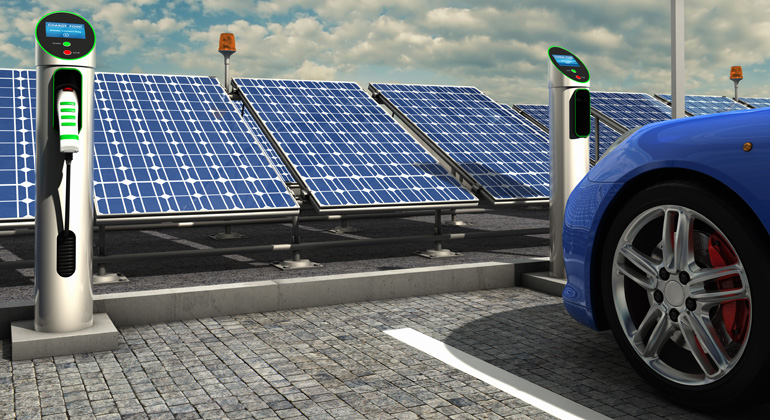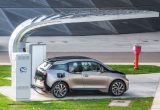Cleaner Cars from Cradle to Grave
Over their lifetime, battery electric vehicles produce far less global warming pollution than their gasoline counterparts—and they’re getting cleaner.
Since we first published our State of Charge report in 2012, the environmental benefits of electric vehicles (EVs) have continued to grow. Two-thirds of all Americans now live in areas where driving an EV produces fewer climate emissions than almost all comparable gasoline and gasoline hybrid cars—a fact attributable to more efficient EVs and an increasingly clean electricity grid.
But what are the global warming emissions of electric cars on a life cycle basis—from the manufacturing of the vehicle’s body and battery to its ultimate disposal and reuse? To answer this, the Union of Concerned Scientists undertook a comprehensive, two-year review of the climate emissions from vehicle production, operation, and disposal. We found that battery electric cars generate half the emissions of the average comparable gasoline car, even when pollution from battery manufacturing is accounted for.
A life cycle analysis of EVs
All vehicles experience three distinct life stages: manufacturing, operation, and end-of-life. Each stage is linked with carbon dioxide and other greenhouse gas emissions—but those emissions differ between gas-powered cars and electric cars.
Both types of vehicle begin in much the same way. Raw materials are extracted, refined, transported, and manufactured into various components that are assembled into the car itself. Because electric cars store power in large lithium-ion batteries, which are particularly material- and energy-intensive to produce, their global warming emissions at this early stage usually exceed those of conventional vehicles. Manufacturing a mid-sized EV with an 84-mile range results in about 15 percent more emissions than manufacturing an equivalent gasoline vehicle. For larger, longer-range EVs that travel more than 250 miles per charge, the manufacturing emissions can be as much as 68 percent higher.
These differences change as soon as the cars are driven. EVs are powered by electricity, which is generally a cleaner energy source than gasoline. Battery electric cars make up for their higher manufacturing emissions within eighteen months of driving—shorter range models can offset the extra emissions within 6 months—and continue to outperform gasoline cars until the end of their lives.








